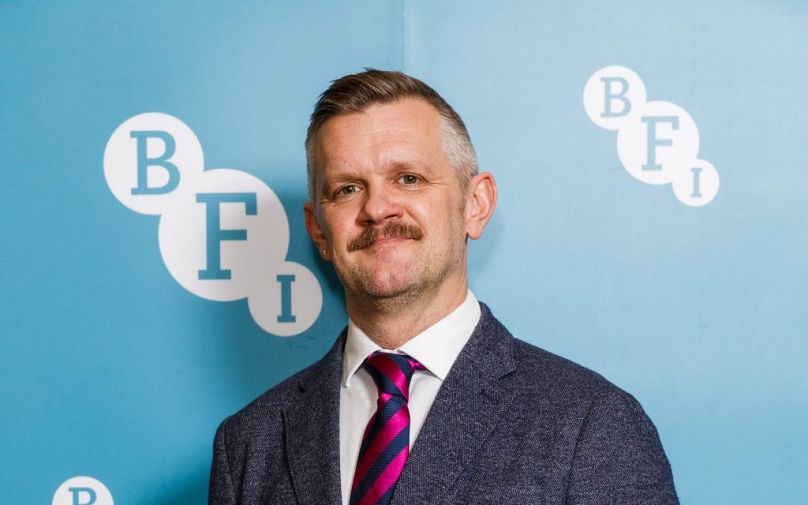The British Film Institute (BFI), one of the UK’s most powerful and influential movie funding bodies, is finally addressing claims of racism.
The British Film Institute (BFI), one of the UK’s most powerful and influential movie funding bodies, is finally addressing claims of racism.
A spokesperson for the production organization allegedly admitted to filmmaker Faisal A Qureshi (associate producer on the BAFTA-winning Four Lions and HBO’s Emmy-winning Michael Jackson documentary Leaving Neverland) last year that the institute is “systemically racist” after apologizing for how the filmmaker’s long-running discrimination complaint was handled.
The apology left Qureshi wanting, feeling that it was “the kind of apology you’d expect from Just Eat or McDonald’s when you’ve got your order wrong”.
A failure to support diversity
As reported by industry website Deadline, the Head of Inclusion at BFI, Melanie Hoyes, allegedly told Qureshi during a private meeting that fellow filmmakers of colour had “traumatic experiences” with the BFI.
Qureshi allegedly sought out a formal apology from the BFI more than two years ago after filing an official complaint over a funding meeting with a BFI Network representative in 2019. Qureshi alleged that the former BFI employee informed him he was ineligible for funding and cited how Qureshi was “very forthright” about race on social media.
Per Deadline, a senior BFI manager emailed colleagues in April 2022 to state that Qureshi’s claims that he experienced “racially insensitive behaviour” remained unsubstantiated.
By July 2022, Qureshi had a meeting with Hoyes to hopefully resolve the complaint. Hoyes reportedly told Qureshi that she knew BFI is a “systemically racist” organization and apologized for his experience.
Qureshi’s case remains unresolved, and he told Deadline he is yet to receive the formal written apology he requested. He shared that he is fearful that his pursuit of the BFI could be damaging to his career, despite assurances from the institute that complaints would never compromise access to funding.
Deadline's findings build a picture of an organisation failing to support diverse talent. There have been 11 funding complaints between 2019 and 2022, and highest number of complaints to the BFI over the past three years concerned racial discrimination.
According to a Freedom of Information request, the other complaints related to sex and gender (three); class, age, and social background (one); and general complaints (three).
Overhauling procedures
The BFI admitted that it does not have the perfect system for handling complaints.
BFI Chief Executive Ben Roberts confirmed that the BFI is conducting “challenging and thought-provoking” efforts to curb discrimination.
“As a public funder that is open to all, one of our greatest challenges is managing the inevitably high level of unsuccessful applications,’ Roberts said in a statement. “Failing to secure funding for a project can leave applicants feeling that we are not a place for them, so our job is to make sure that filmmakers stay motivated to apply with future projects, and that we handle challenge and complaint well. We realise that we don’t have a perfect system and we are working hard to make it more user-friendly.”
The institute is now overhauling its procedures, as well as undertaking anti-racism training to address unconscious biases. It has also announced that BFI Film Fund executives will now be hired on fixed-term contracts after Director Mia Bays was told people had been in posts for “too long.”
Bays announced the departure of three top executives: Lizzie Francke, Editor-at-Large; Fiona Morham, Head of Production; and Natascha Wharton, Head of Editorial.
The BFI did note, as a counternarrative to several discrimination claims, that 35 percent of the productions it has supported over the past 12 months hail from ethnically diverse writers, directors, and producers. They added that this figure exceeds its target of 30%.
“We’ve seen real progress in the diversity of storytelling supported through the BFI Film Fund,” Roberts said. “As a public funder and the industry’s lead body, the BFI is rightly held to the highest standards. The work we do in building a more diverse and inclusive organization, and continuing to improve representation across the screen sectors, is at the heart of our 10-year strategy Screen Culture 2033. Becoming a truly anti-racist organization is incredibly important to us and I’m proud of how seriously our teams take this work.”
For Jonte Richardson, an independent producer who has worked on the BET (Black Entertainment Television) Awards, this is not enough.
Richardson has stated he feels the UK should seek to emulate the Black Hollywood scene in the US by championing local talent of colour more strongly, and that tougher consequences should befall organisations that admitted to racism.
He went on to say that only change at the top would address the underlying issues.
“The problem with any institution that is systematically racist is there’s no quick or easy fix,” he said, while acknowledging there had been some improvements over the past year.













